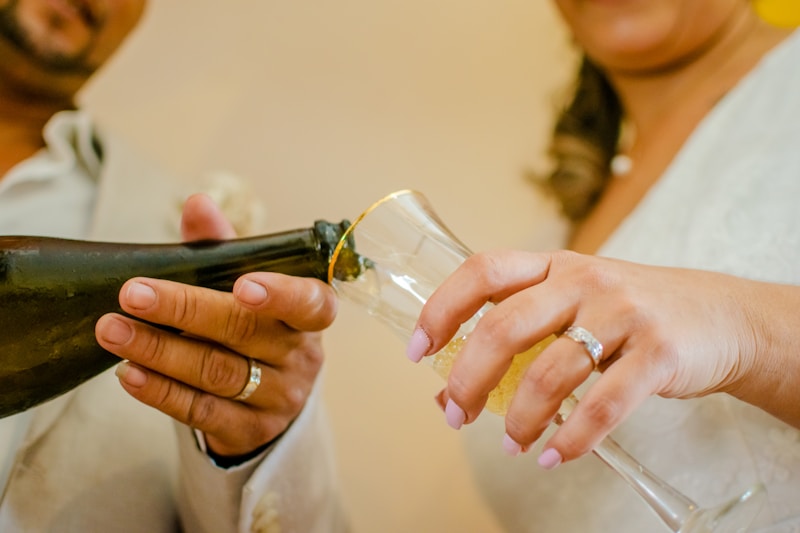Best Practices for Bridal Appointment Scheduling
Best Practices for Bridal Appointment Scheduling
When planning a wedding, one of the critical aspects that brides must manage is the scheduling of appointments for bridal services. Whether it's trying on wedding dresses, meeting with florists, or booking hair and makeup trials, effective appointment scheduling can make the process smoother and less stressful. In this article, we will explore the best practices for bridal appointment scheduling, ensuring that every detail is perfect for your big day.
Understanding the Importance of Appointment Scheduling
Efficient appointment scheduling is essential for brides-to-be. It helps streamline the planning process, minimizes delays, and reduces the chances of last-minute issues. Here are some reasons why effective scheduling is crucial:
- Time Management: Proper scheduling allows brides to allocate time wisely, ensuring they can fit in all necessary appointments without rushing.
- Availability: Many wedding vendors have limited availability, particularly during peak wedding seasons. Scheduling ahead helps secure appointments with preferred vendors.
- Reduced Stress: A well-organized schedule can significantly reduce the stress and anxiety that often accompany wedding planning.
Best Practices for Scheduling Appointments
1. Create a Timeline
Start by creating a timeline for your wedding planning process. This timeline should include deadlines for key tasks, such as booking vendors, finalizing guest lists, and scheduling appointments. Use tools like project management apps or traditional planners to help keep everything on track. Below is an example of a sample timeline you might consider:
| Timeframe | Task |
| 12 Months Before | Set a budget and book the venue. |
| 8-10 Months Before | Schedule appointments for dress fittings. |
| 6 Months Before | Meet with florists, caterers, and entertainment vendors. |
| 3 Months Before | Finalize hair and makeup appointments. |
| 1 Month Before | Confirm all vendor appointments. |
2. Utilize Online Tools
Several online tools can help streamline the scheduling process. Calendar apps can be used to set reminders for appointments, while dedicated apps for wedding planning provide checklists and timelines. Additionally, many bridal boutiques and vendors offer online booking options, which can save time and eliminate phone tag.

3. Prioritize Your Appointments
Some appointments are more critical than others and should be scheduled first. For instance, finding the perfect wedding dress may be a top priority, whereas you're still undecided about floral arrangements. Prioritize appointments based on their importance and the time-sensitive nature of certain services.
4. Be Flexible
While it's essential to stick to a schedule, being flexible can also be beneficial. Vendors may have limited availability, and being open to different times can help secure the best options. If a preferred vendor is fully booked, consider alternative time slots or even different vendors who can provide the same quality service.
5. Communicate Early and Often
Reach out to vendors as early as possible to discuss their availability and services. Many will appreciate your proactive approach, and effective communication can foster a good working relationship. Do not hesitate to ask questions concerning their policies regarding cancellations, rescheduling, and deposits.
Common Scheduling Mistakes to Avoid
While scheduling may seem straightforward, several mistakes can lead to complications:
- Last-Minute Appointments: Avoid the temptation of scheduling appointments too close to the wedding date. Aim to complete most of your appointments several months in advance.
- Ignoring Time Zones: If you're working with vendors from different locations, be mindful of time zone differences to ensure a smooth communication process.
- Overloading Your Schedule: Make sure you’re not scheduling too many appointments in one day. This can lead to fatigue and may prevent you from making clear-headed decisions.
FAQs on Bridal Appointment Scheduling
1. How far in advance should I schedule my bridal appointments?
It is advisable to start scheduling your bridal appointments at least 6-12 months before your wedding, depending on the season and the popularity of the vendors.
2. Can I schedule appointments for multiple vendors in one day?
While it is possible to schedule multiple appointments in one day, it’s vital to leave ample time between them to avoid feeling rushed. Two to three appointments per day is generally a comfortable maximum.
3. What should I bring to my bridal appointments?
Bring a list of questions, inspirational photos, and any accessories you think you might want to wear (such as shoes or jewelry) to your bridal appointments. This will help you and the vendor make informed decisions.
Conclusion: Making Your Bridal Experience Enjoyable
In summary, effective bridal appointment scheduling is crucial for a smooth wedding planning process. By creating a timeline, utilizing online tools, prioritizing appointments, being flexible, and maintaining open communication with vendors, you can create an enjoyable experience for yourself. Avoid common mistakes like scheduling appointments too late or overloading your days, and you will set yourself up for success.
Remember, this day is about you and your significant other. Take the time to enjoy each step of the journey, from the appointment scheduling to the moment you say, "I do." Happy planning!
